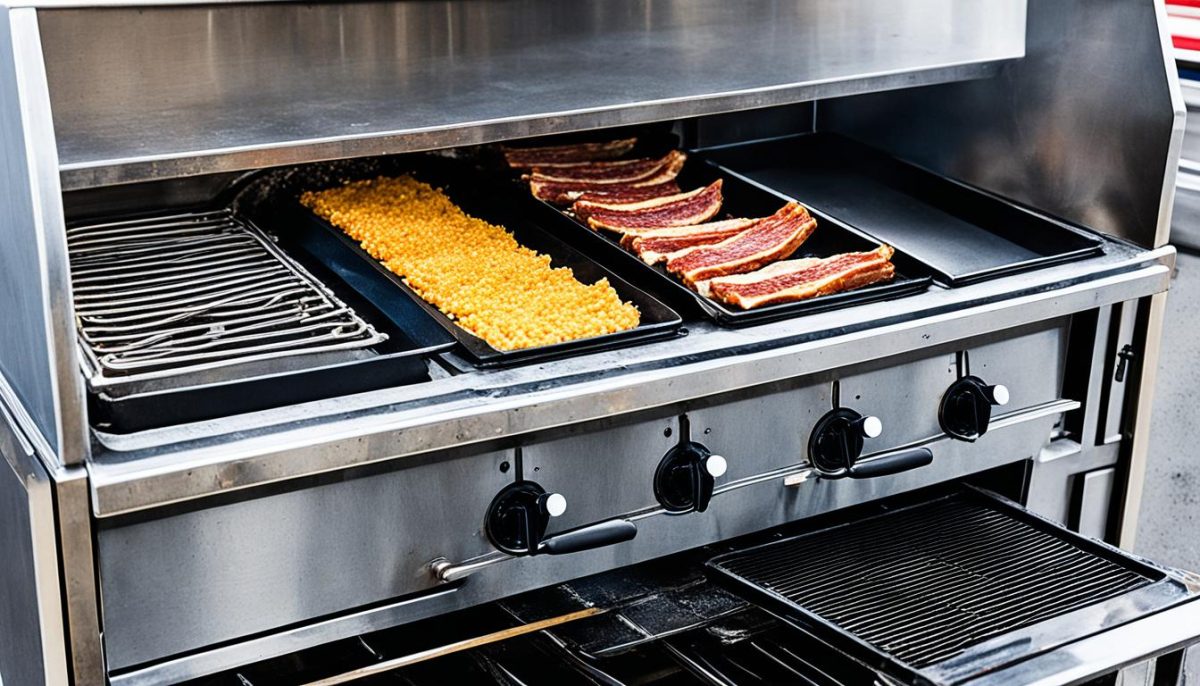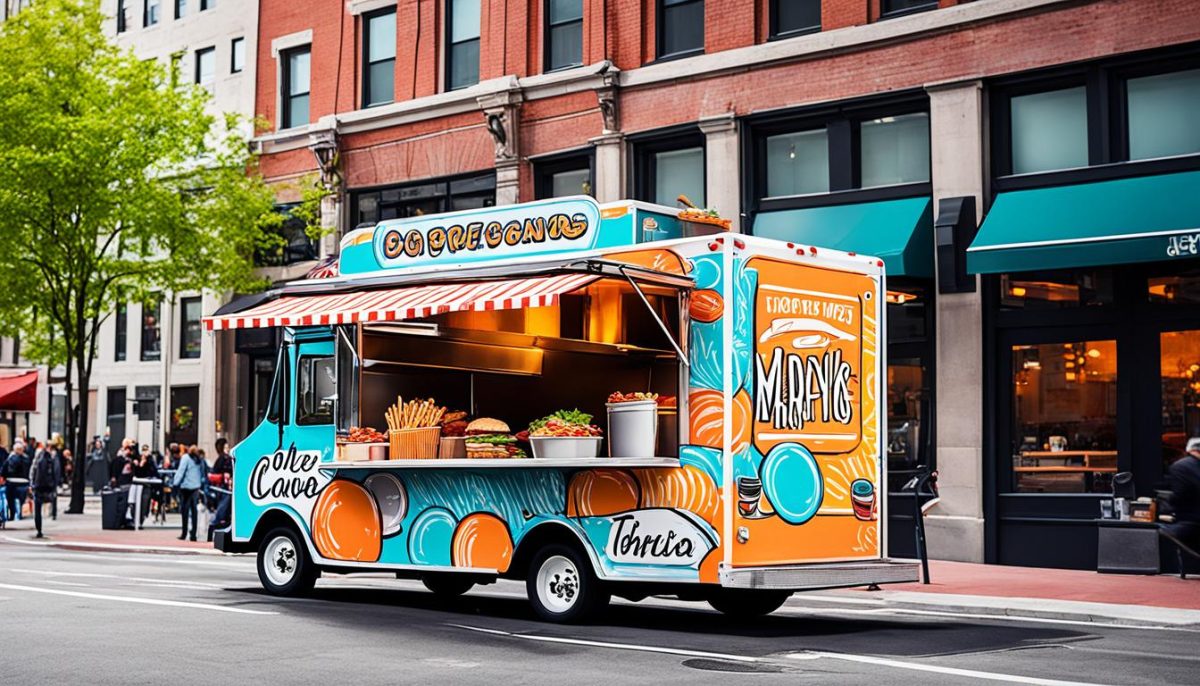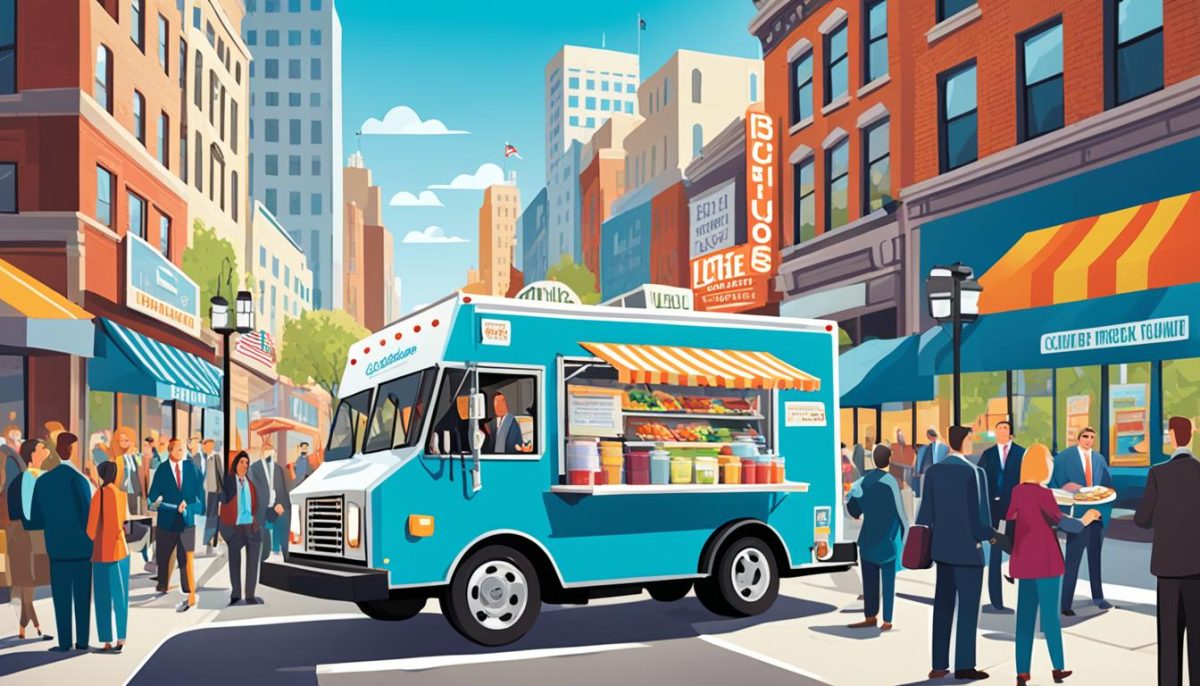Welcome to the world of mobile culinary delights! If you’re passionate about food and dream of bringing your delicious creations to the streets, starting a food truck may be the perfect venture for you. But where do you begin? What are the essentials you need to get your food truck up and running?
In this section, we will explore what it takes to start a food truck and highlight the key components that are essential for your culinary success. From the necessary permits and licenses to the equipment and kitchen setup, we’ll guide you through the process, ensuring you have all the information needed to hit the ground running.
Starting a food truck can be an exciting and rewarding journey. So, let’s dive in and uncover the food truck essentials that will set you on the path to success!
Creating Your Mobile Culinary Setup
Setting up a food truck requires careful planning and execution. In this section, we will explore the essential equipment and kitchen setup needed to ensure efficient food preparation and service. Additionally, we’ll discuss the modifications required for your vehicle to accommodate your culinary needs. Lastly, we’ll guide you through the process of obtaining the necessary permits and licenses to legally operate your food truck.
1. Food Truck Equipment
Equipping your food truck with the right tools and appliances is crucial for smooth operations. Here are some essential equipment options you should consider:
- Commercial-grade grill and range
- Deep fryer
- Refrigeration units
- Preparation tables and counters
- Storage shelves and cabinets
- Exhaust hood and fire suppression system
2. Kitchen Setup
Efficient organization and layout of your food truck kitchen can greatly enhance productivity. Keep these factors in mind while designing your kitchen setup:
- Ergonomic workstations to optimize workflow
- Ample storage for ingredients, utensils, and cookware
- Proper ventilation and cooling systems
- Easy-to-clean surfaces and flooring
3. Vehicle Modifications
Adapting your vehicle to meet the specific needs of your food truck is essential. Consider these modifications:
- Installing stainless steel walls and flooring for hygiene
- Adding serving windows and exterior signage
- Customizing the interior layout to maximize space
- Integrating electrical and plumbing systems
4. Permits and Licenses
Operating a food truck requires obtaining the necessary permits and licenses from local authorities. Here are some common permits and licenses you may need:
- Business license
- Foodservice permit
- Health and safety inspection certifications
- Parking permits
- Special event permits (if applicable)
To ensure compliance and avoid legal issues, consult with your local government and health department to understand the specific requirements for your area.

| Food Truck Equipment | Kitchen Setup | Vehicle Modifications | Permits and Licenses |
|---|---|---|---|
| Commercial-grade grill and range | Ergonomic workstations | Stainless steel walls and flooring | Business license |
| Deep fryer | Ample storage | Serving windows and exterior signage | Foodservice permit |
| Refrigeration units | Proper ventilation and cooling systems | Customized interior layout | Health and safety inspection certifications |
| Preparation tables and counters | Easy-to-clean surfaces and flooring | Electrical and plumbing systems integration | Parking permits |
| Storage shelves and cabinets | Special event permits (if applicable) | ||
| Exhaust hood and fire suppression system |
Marketing and Operating Your Food Truck
Now that your food truck is ready to hit the streets, it’s time to focus on the essential aspects of marketing and operations. Building a strong brand identity is crucial to stand out in the competitive food truck industry. Develop a unique and memorable branding that reflects your culinary style and resonates with your target audience.
A well-designed menu can make a significant impact on customer perception and engagement. Create an enticing menu design that showcases your signature dishes and highlights your culinary expertise. Use visually appealing images and descriptive language to entice customers and convey the flavors and quality of your offerings.
Setting the right prices is vital to attract customers and ensure profitability. Consider the costs of ingredients, preparation time, and overhead expenses while determining your pricing strategy. Offering competitive prices that provide value for money can help you gain a loyal customer base and maintain a steady stream of sales.
Location scouting is a crucial aspect of operating a successful food truck. Identify high-traffic areas, events, and popular destinations where your target customers are likely to be present. By strategically parking your food truck in these locations, you can maximize your visibility and increase your chances of attracting a steady flow of customers.
Customer engagement is key to building strong relationships and fostering repeat business. Interact with your customers in a friendly and approachable manner, taking the time to listen to their feedback and preferences. Utilize social media platforms and other marketing channels to engage with your audience, provide updates on your locations, and offer promotions or discounts. By creating a positive and memorable customer experience, you can generate buzz and build a loyal customer base for your mobile culinary venture.



